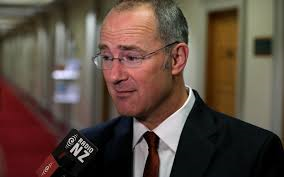


Posted July 15, 2015
If there’s one thing political pundits have learnt over the last few years, it’s that negative media coverage of an issue has no automatic impact on public opinion.
 Before last year’s election, someone watching TV for the first time would be forgiven for thinking National would lose in a landslide. There was huge criticism of John Key, particularly around the GCSB saga. But National won handsomely.
Before last year’s election, someone watching TV for the first time would be forgiven for thinking National would lose in a landslide. There was huge criticism of John Key, particularly around the GCSB saga. But National won handsomely.
Look at the Ponytail gate story this year. It went on for weeks, but again had little impact on National’s popularity in the opinion polls.
So what does this tell us?
It shows that just because the media coverage is negative about a political party or politician, the audience doesn’t necessarily take on that negative viewpoint. In the case with National, people didn’t care about the GCSB or Ponytail gate. Neither issue had an impact on their back pocket.
Now it could be Labour's turn to benefit from negative publicity. This is after its controversial release of real estate figures the party claims show that Chinese buyers are well over-represented in house sales. Media stories and commentaries have been extremely negative towards Labour. Some have called their outburst racist.
But what does the kiwi middleclass voter think? Particularly those finding it hard to break into the Auckland property market? I suspect a number will like what they see in Labour’s approach and clear policy on foreign buyers. If they do, Labour will follow National in growing popularity in the face of negative publicity.
Labour have recently been guilty of focusing on issues that New Zealander’s don’t care about. The difference here is that the party may have tapped into an emotional issue that people do very much care about. Time will tell.
This raises an interesting point I always bring up in my media training workshops. You are not trying to convince the person asking the questions in media interviews that your argument is the right one. It’s the person watching the TV news, listening to the radio or reading the newspaper. And their view may be quite different from the commentators and angles taken in news stories. They are the ones that count.
For more on my media training, contact [email protected] or 029 200 8555